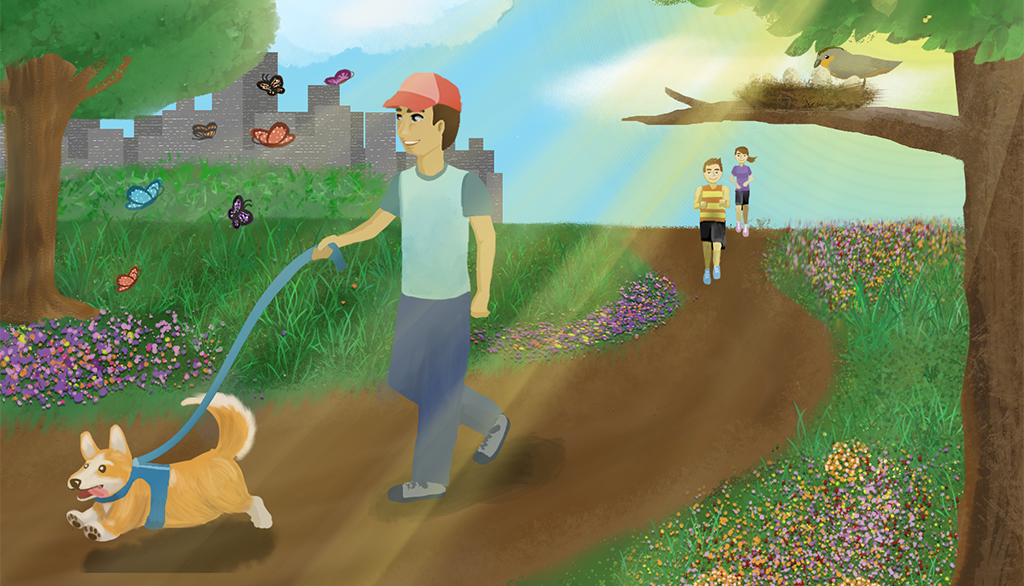Walks in the wilderness can benefit emotional and physical health

The emotional connection or calming feeling that accompanies a walk in a park or forest is the result of psychological needs being met, according to a recent study from researchers at Texas A&M University, the University of Georgia and the Minnesota Department of Natural Resources.
The study found that people’s attachment to the wilderness can be explained by their basic psychological needs for autonomy, relatedness and competence. Additional research links place attachment, specifically to areas where trees are plentiful, to feelings of well-being, suggesting that spending time in natural areas can provide positive mental and physical health outcomes and improve healing.
With increased stress and isolation due to COVID-19, natural areas and the psychological benefits they provide are needed now more than ever, researchers say.
“In the context of COVID-19, the benefits for human physical and mental health have become increasingly important with increases in visitation to protected areas and participation in outdoor activities such as hiking, camping and fishing,” said study collaborator Gerard Kyle, professor and associate department head for academic programs in the Department of Rangeland, Wildlife and Fisheries Management.
Kyle conducted a cross-sectional study along with a select group of his former coworkers and students, surveying 795 Americans to assess their attachment to a wilderness area that is special to them. The study, “Psychological Needs Satisfaction and Attachment to Natural Landscapes,” was recently published in Environment and Behavior.
Respondents were asked to evaluate their attachment based on place identity, emotional attachment and dependence and also on how well it met their needs for autonomy and emotional connection.
Results from the study showed that the wilderness area’s ability to fulfill basic psychological needs predicted the level of attachment one felt to the area.
The researchers found strong relationships between respondents’ emotional attachment and the autonomy they felt the setting provided them. Their data suggests that place identity is strongly tied to an individual’s psychological need for relatedness or emotional connection.
“Humans’ need for nature varies considerably for a variety of reasons but has also been linked to evolution. For some, the need, or trait, is strong,” Kyle said. “For many, the settings are also linked to an array of memories of past experiences with significant others. These memories can extend back to early childhood and can be deeply emotional.”

